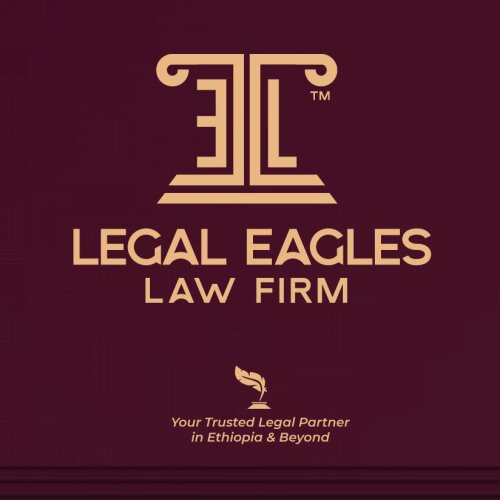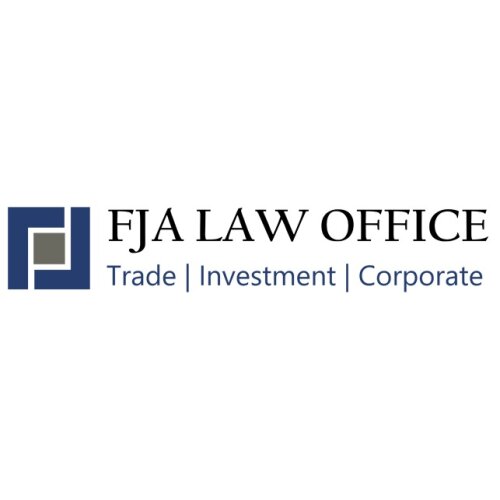Best Trademark Lawyers in Ethiopia
Share your needs with us, get contacted by law firms.
Free. Takes 2 min.
Or refine your search by selecting a city:
List of the best lawyers in Ethiopia
About Trademark Law in Ethiopia
Trademark law in Ethiopia is governed by the Trade Mark Registration and Protection Proclamation No. 501/2006, which provides the legal framework for trademark registration, maintenance, and enforcement. A trademark is a sign capable of distinguishing the goods or services produced or provided by one person or business from those of others. This can include names, symbols, sounds, or even colors in certain cases. In Ethiopia, trademarks can be registered nationally, providing exclusive rights to the trademark owner to use the mark within the country.
Why You May Need a Lawyer
Trademark law can be complex and navigating the legal landscape may be challenging for individuals and businesses. Here are common situations where legal help in the field of trademarks may be necessary:
- Trademark Registration: A lawyer can help in the process of registering a trademark to ensure that all legal requirements are met and that the application process is smooth.
- Infringement Issues: If you suspect your trademark rights are being violated, a lawyer can guide you through enforcing these rights.
- Trademark Opposition: Legal assistance may be required if a third party opposes your trademark application.
- Licensing and Assignments: When transferring trademark rights or licensing them, legal expertise ensures all transactions are done legally and under favorable terms.
- Litigation: In cases of disputes or litigation, having a lawyer experienced in trademark law is crucial to protecting your business interests.
Local Laws Overview
The key aspects of trademark law in Ethiopia include:
- Registration Requirements: Trademarks must be distinctive and not misleading. Descriptive marks or common names can't be registered unless they have acquired distinctiveness through use.
- Trademark Protection: Once registered, trademarks are protected for an initial period of seven years and can be renewed indefinitely for subsequent periods of seven years each.
- Classification System: Ethiopia follows the Nice Classification system for trademark classification, which categorizes goods and services into different classes.
- Use Requirement: Trademarks must be used in the market to maintain their registration and protection.
- Enforcement: Trademark owners can seek enforcement through civil remedies, including injunctions, damages, and orders for the delivery or destruction of infringing goods.
Frequently Asked Questions
What is a trademark?
A trademark is any sign that distinguishes the goods or services of one enterprise from those of others. This can include words, logos, and slogans.
How can I register a trademark in Ethiopia?
You can register a trademark through the Ethiopian Intellectual Property Office (EIPO). The process involves filing an application, which is then examined for any conflicts or issues.
What are the fees associated with trademark registration?
The fees vary depending on the class of goods or services and the type of application. It's advisable to consult with EIPO or a legal expert for the current fee structure.
How long does the trademark registration process take?
The process can take several months to over a year, as it involves examination and publication stages where objections can be raised.
Can I register a trademark internationally from Ethiopia?
Yes, through the Madrid Protocol, Ethiopian trademark owners can seek protection in multiple countries with a single application.
What happens if someone infringes on my trademark?
You can take legal action against the infringer, including seeking injunctions to stop the use of your trademark and claiming damages.
Can a trademark be sold or licensed in Ethiopia?
Yes, trademarks can be transferred or licensed, but the agreements should be properly documented and registered with relevant authorities for legal enforceability.
What happens if I don't use my registered trademark?
If a trademark is not used within a specified period (usually 3 to 5 years), it may be subject to cancellation for non-use.
How can I renew my trademark registration?
Trademark renewals can be undertaken through submitting the requisite forms and paying the renewal fees before the expiration of the current term.
What are the grounds for opposing a trademark application?
Common grounds include lack of distinctiveness, similarity to existing trademarks, and conflict with public order or morality.
Additional Resources
For further assistance, the following resources may be helpful:
- Ethiopian Intellectual Property Office (EIPO): The government body responsible for trademark registration and protection.
- World Intellectual Property Organization (WIPO): Offers extensive resources on international trademark protection, including the Madrid System.
- Local Law Firms: Engaging a local law firm with expertise in intellectual property can provide personalized guidance and support.
- Trademark Practitioners: Professionals who specialize in trademark law can also offer advice and assistance for complex issues.
Next Steps
If you need legal assistance in trademark matters in Ethiopia, consider the following steps:
- Conduct Research: Familiarize yourself with local laws and the trademark registration process.
- Consult Legal Experts: Contact a lawyer or law firm with expertise in trademark law to discuss your specific needs and receive professional guidance.
- Prepare Documentation: Gather necessary documents and evidence for your trademark application or defense.
- Maintain Records: Keep comprehensive records of all trademark usage and enforcement actions to aid in legal proceedings if required.
- Stay Informed: Continuously update yourself on any changes in trademark laws and regulations that may affect your rights and obligations.
Lawzana helps you find the best lawyers and law firms in Ethiopia through a curated and pre-screened list of qualified legal professionals. Our platform offers rankings and detailed profiles of attorneys and law firms, allowing you to compare based on practice areas, including Trademark, experience, and client feedback.
Each profile includes a description of the firm's areas of practice, client reviews, team members and partners, year of establishment, spoken languages, office locations, contact information, social media presence, and any published articles or resources. Most firms on our platform speak English and are experienced in both local and international legal matters.
Get a quote from top-rated law firms in Ethiopia — quickly, securely, and without unnecessary hassle.
Disclaimer:
The information provided on this page is for general informational purposes only and does not constitute legal advice. While we strive to ensure the accuracy and relevance of the content, legal information may change over time, and interpretations of the law can vary. You should always consult with a qualified legal professional for advice specific to your situation.
We disclaim all liability for actions taken or not taken based on the content of this page. If you believe any information is incorrect or outdated, please contact us, and we will review and update it where appropriate.
Browse trademark law firms by city in Ethiopia
Refine your search by selecting a city.

















